Documentation and Description
of Jirim Language and Traditions
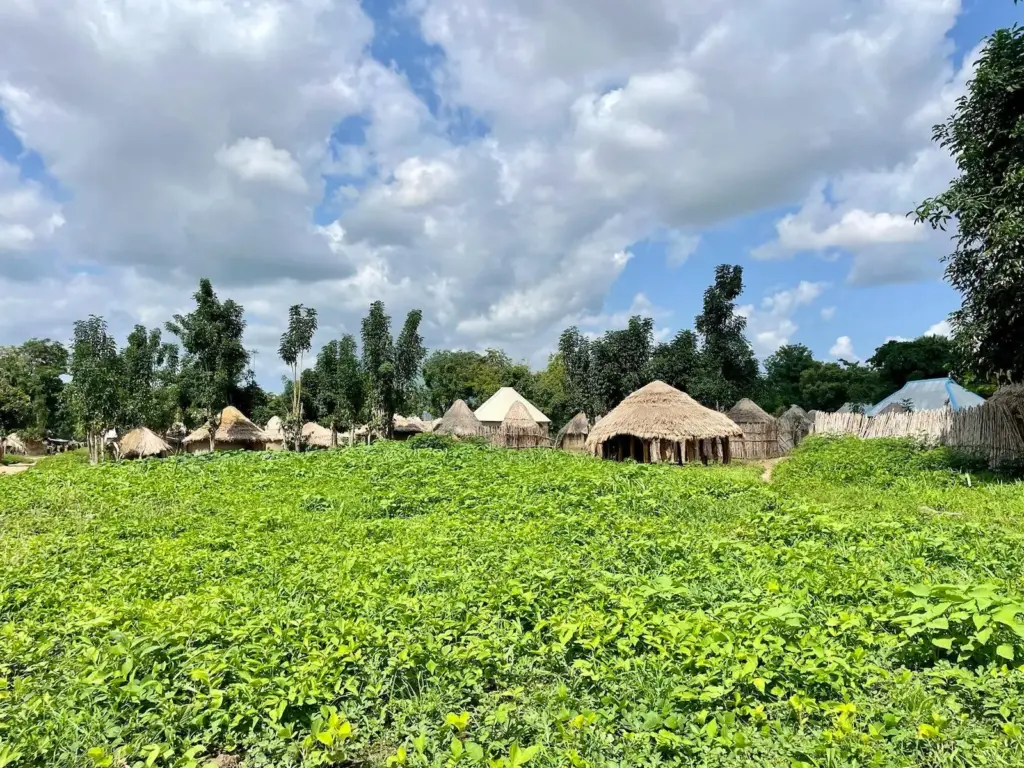
Welcome! Akwam isanhe’!
Jirim, with an estimated 5,000 to 10,000 speakers, is an endangered language spoken in several villages across the Taraba State in north-eastern Nigeria. The region is renowned for its rich linguistic and cultural diversity, stunning natural landscapes, and welcoming communities. The Jirim people primarily engage in traditional agriculture, with guinea corn as their staple crop. However, the impact of climate change and Nigeria’s challenging economic situation are compelling many young Jirim to migrate to urban areas in search of better infrastructure and economic opportunities. In cities, Jirim speakers shift to dominant languages like English and Hausa. As a result, the Jirim language and traditions are fading away.
This project is dedicated to documenting and thus preserving the rich cultural heritage of the Jirim community – their folktales, songs, dances, rituals, prayers, farming techniques, recipes, games, and many other aspects of traditional life.
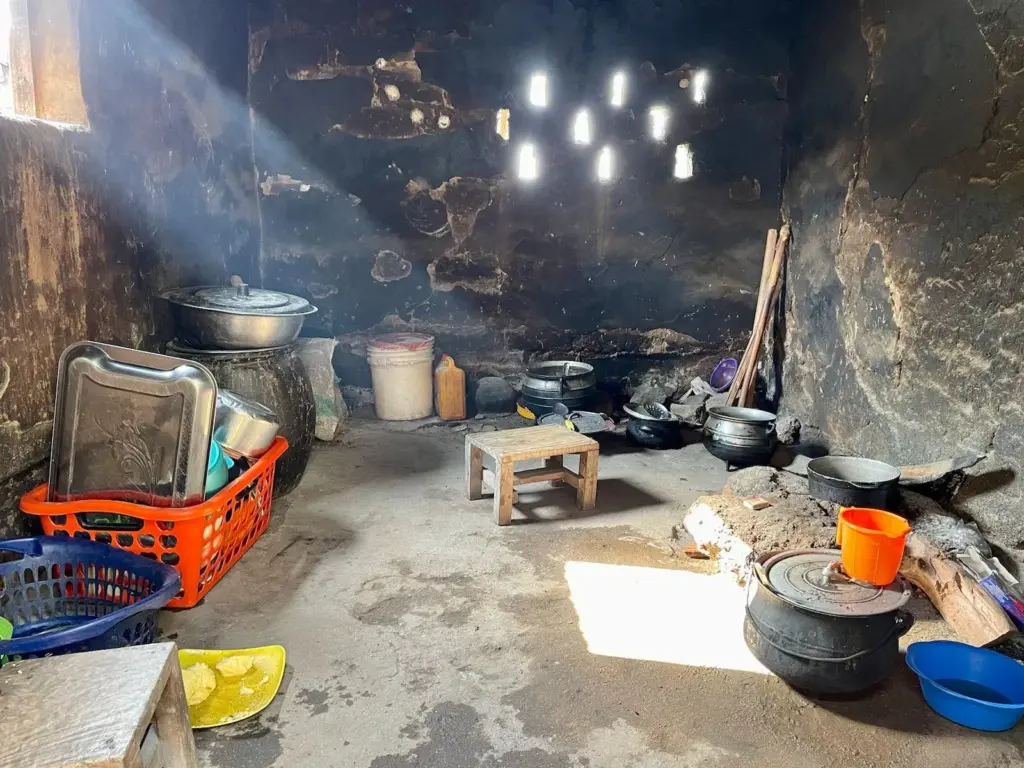
Our team is currently working on transcribing and translating materials recorded during my stay with the Jirim community in June-July 2023. Our collection will be deposited with Endangered Languages Archive (ELAR) and will include
- videos with English subtitles
- maps of Jirim villages
- photographs
- field notes
- a grammar sketch
- a trilingual Jirim-Hausa-English dictionary
- a collection of Jirim folktales with linguistic annotation
- a bilingual cooking book with trasitional Jirim recipes and English translations
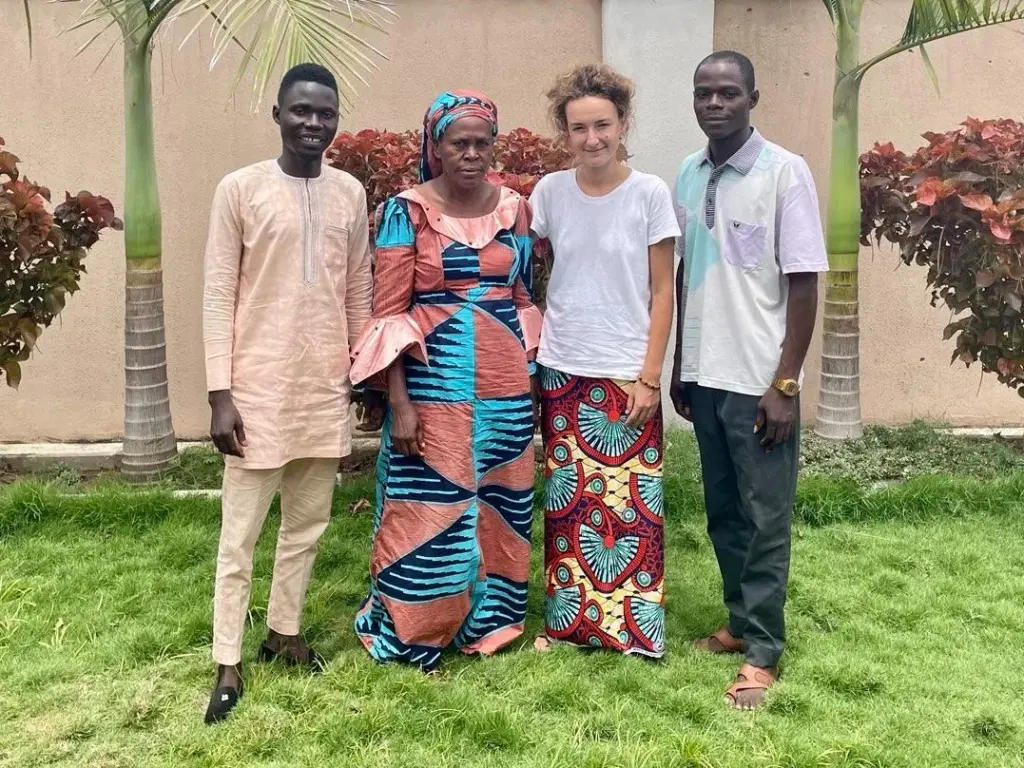
Our team
We are a very small team, but our varied strengths and skills complement each other in a strong collaboration.
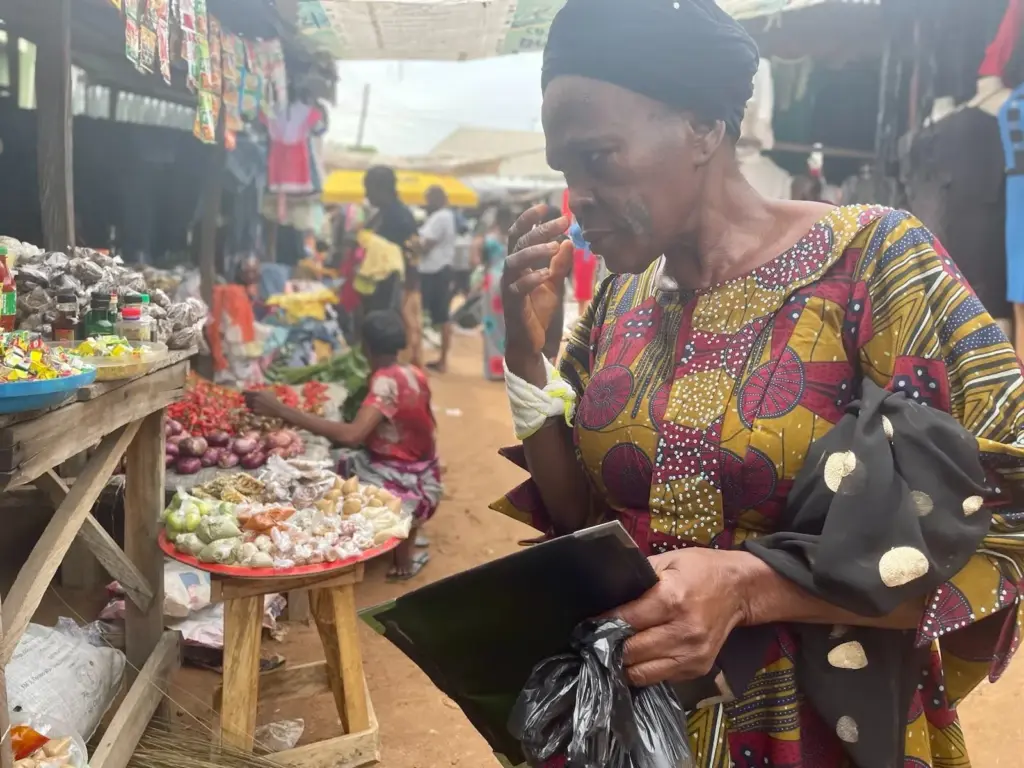
Rebecca is a Jirim elder from Gangumi, a remote village so hard to reach that you have to take a commercial vehicle (with seven or occasionally even eight people crammed into a two-door car), a motorbike (carrying four), cross the Taraba River in a canoe, and trek. As the head of a maternity clinic, Rebecca knows all the parents and their children. Interested in preserving Jirim history and traditions, she wishes to see Jirim children reading Jirim books.
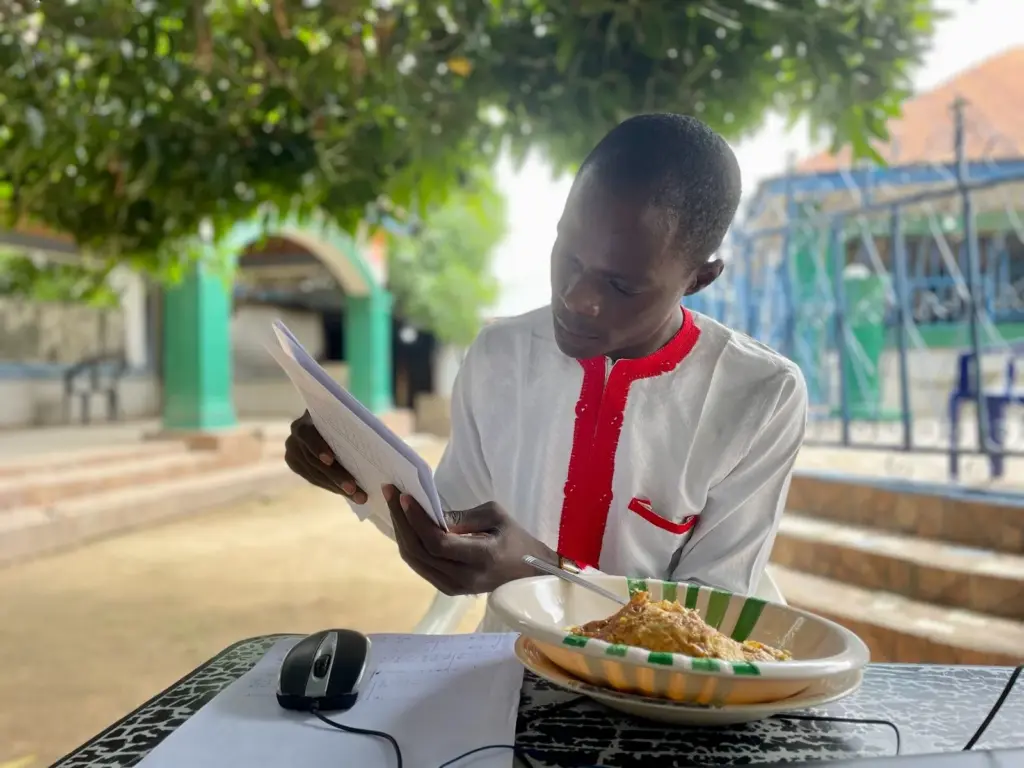
Innocent is a linguist specialising in Hausa. I met Innocent one day after he had passed his final BA exam. To my great surprise, Innocent has been working on the Jirim transcriptions of the very same wordlist* I had just elicited! Recognising the need to document his own language, Innocent has compared Jirim with Hausa as part of his university assignments, describing how morphology and syntax of these unrelated languages differ. Innocent regularly contributes to this project despite having no electricity and no internet at home. He is responsible for transcribing recordings and answering my questions about aspects and affixes.
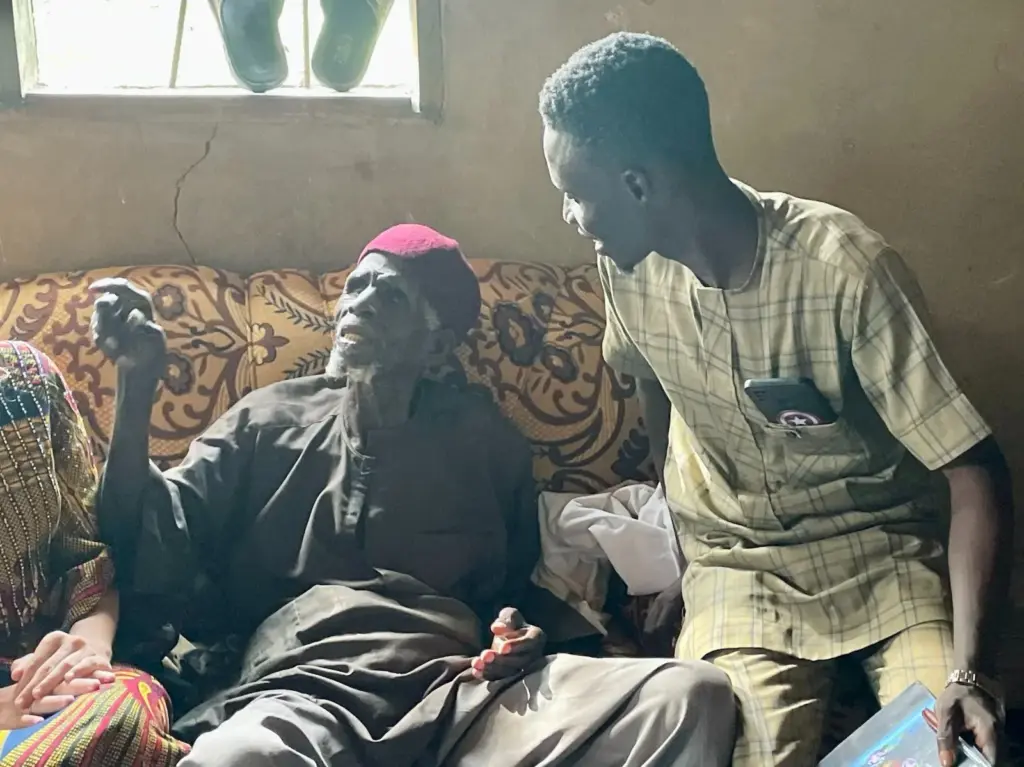
Obidah is good at fixing computer problems. He is also an effective communicator, always available and keeping the team together. Obidah is enthusiastic about learning new things and, having to listen to Innocent and me discuss aspects and affixes, he is now turning into a linguist. He helps me to transcribe and translate the recordings in ELAN and fixes all the ELAN bugs plaguing Innocent. Meeting Obidah is a story worth retelling. It happened on the day when I decided to show my colleagues how to segment in ELAN. All in vain: this time, however, not because of ELAN, but because they had never worked on a laptop before. My request for a person who understands Jirim and knows how to use computers was answered with ‘Impossible!’, to be disproven by Obidah’s arrival just 10 minutes later. Obidah, despite living in the city, not only understands but also speaks Jirim – an increasing rarity among the Jirim of his age.
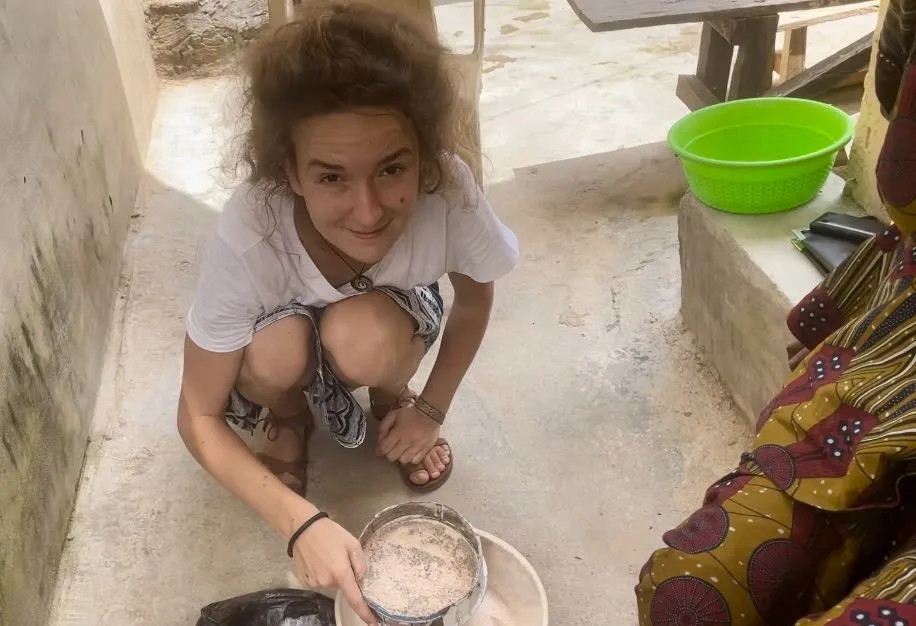
My name is Olga and I am interested in all kinds of languages. Wherever I go, I try to adapt by adeptly adopting the local language.
*Adamawa languages questionnaire – a good starting point if you are planning to work on a language in a Hausa-speaking area, as it contains Hausa translations.
